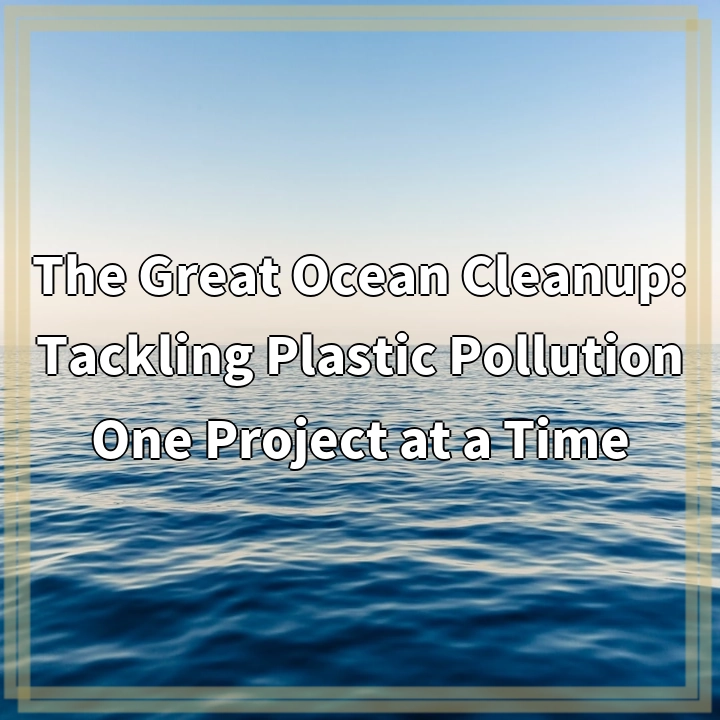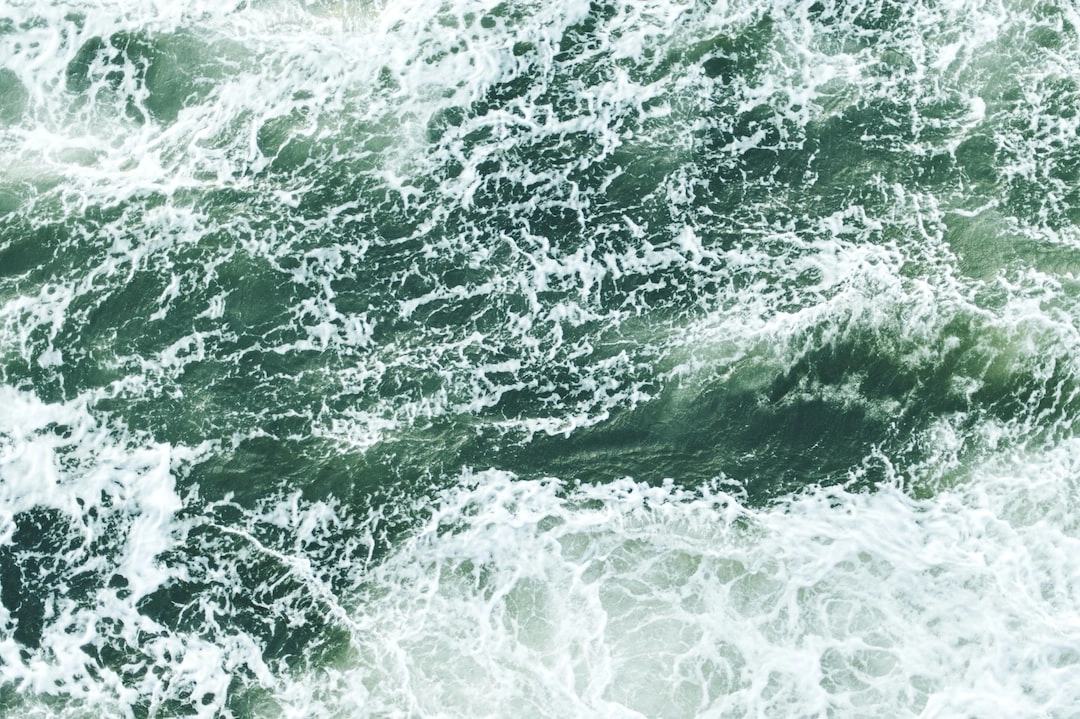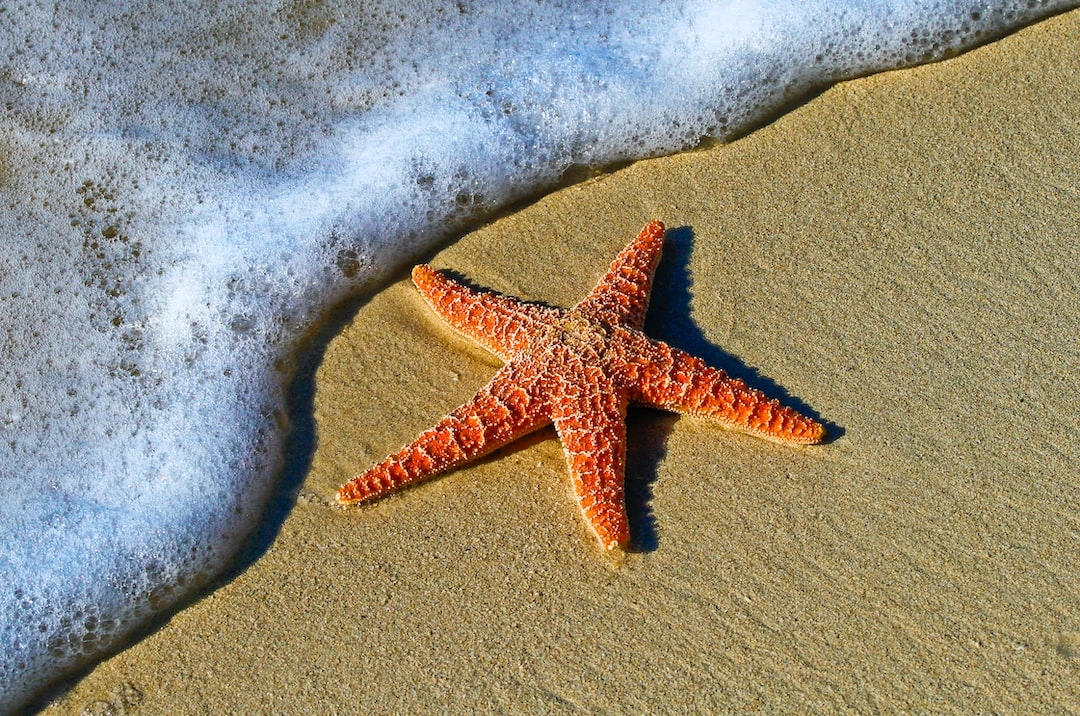
What is The Great Ocean Cleanup?
The Great Ocean Cleanup is an ambitious and innovative project aimed at tackling the growing problem of plastic pollution in our oceans. Founded by Boyan Slat in 2013, this non-profit organization seeks to develop advanced technologies to remove plastic waste from the oceans and prevent further contamination.
Real-World Problems Associated with The Great Ocean Cleanup
1. Scale of the Problem
Plastic pollution in our oceans is a massive problem that poses significant challenges. The sheer volume of plastic waste that has accumulated over the years is staggering, and it continues to increase every day. The Great Ocean Cleanup faces the daunting task of trying to combat this overwhelming scale of pollution.
2. Technological Feasibility
Developing and implementing technologies to effectively clean up plastic in oceans is a complex challenge. It requires innovative solutions that can withstand the harsh marine environment, efficiently capture and remove plastic debris, and minimize any negative impact on marine life. The Great Ocean Cleanup is continuously refining and testing its technologies to ensure they are both effective and environmentally friendly.
3. Cost and Funding
Undertaking large-scale cleanup operations in the oceans requires significant financial resources. The expenses associated with research and development of technologies, deployment of cleanup systems, operational maintenance, and data analysis can be substantial. The Great Ocean Cleanup relies on partnerships, sponsorships, and public donations to support its operations.
4. Global Cooperation
Addressing plastic pollution in the oceans requires global cooperation and coordination among governments, organizations, communities, and individuals. The problem is not limited to one specific region or country, and a collective effort is needed to implement sustainable solutions. The Great Ocean Cleanup actively collaborates with scientific institutions, governments, and corporations to work towards a common goal.
5. Long-Term Impact
Removing plastic waste from the oceans is undoubtedly essential, but it is equally vital to address the root causes of pollution. The Great Ocean Cleanup recognizes this and aims to raise awareness about the consequences of single-use plastics, promote more sustainable practices, and advocate for policy changes to reduce plastic waste generation. Ultimately, the success of the project lies in creating long-term systemic change to prevent further pollution from occurring.

Potential Solutions to Plastic Pollution
Addressing the real-world problems associated with The Great Ocean Cleanup requires a multi-faceted approach that combines various solutions and strategies. Here are some potential solutions to combat plastic pollution:
1. Education and Awareness
Raising awareness about the environmental impact of plastic pollution is crucial. By educating individuals and communities about the consequences of plastic waste and promoting sustainable alternatives, we can encourage more responsible behavior and reduce the demand for single-use plastics.
2. Reduction and Recycling
One effective way to tackle plastic pollution is to minimize plastics at the source. Governments and businesses can implement policies and regulations to reduce the production and consumption of single-use plastics. Additionally, promoting recycling and investing in innovative recycling technologies can help minimize plastic waste ending up in the oceans.
3. Innovations in Packaging
Developing alternative materials and packaging designs that are biodegradable, compostable, or easily recyclable can significantly reduce plastic waste. Research and investment in sustainable packaging solutions can contribute to a circular economy where packaging materials are reused and repurposed rather than discarded.
4. Government Policies and International Cooperation
Governments play a critical role in addressing plastic pollution through the implementation of policies and regulations. They can incentivize businesses to adopt sustainable practices, ban single-use plastics, and promote the development of recycling infrastructure. International cooperation among governments is essential to tackle the global nature of the problem effectively.
5. Consumer Choices and Individual Actions
Individual actions can make a significant difference. Choosing reusable alternatives to single-use plastics, participating in beach cleanups, supporting eco-friendly businesses, and spreading awareness through social media and community engagement can contribute to a collective effort in reducing plastic pollution.
6. Collaboration with Organizations and Scientists
Collaboration with environmental organizations and scientific institutions is crucial in finding innovative solutions, conducting research on the impact of plastic pollution, and developing effective cleanup technologies. By combining resources, expertise, and knowledge, we can work towards comprehensive strategies to tackle plastic pollution on a global scale.















